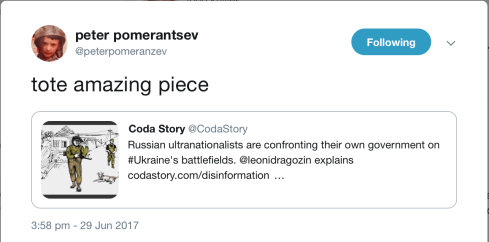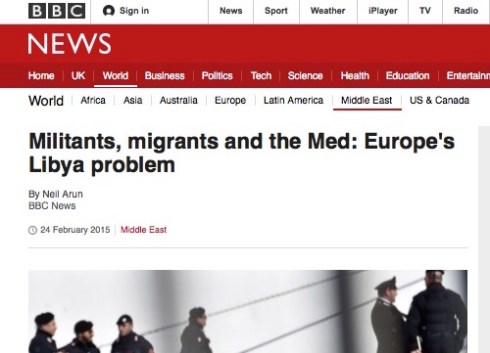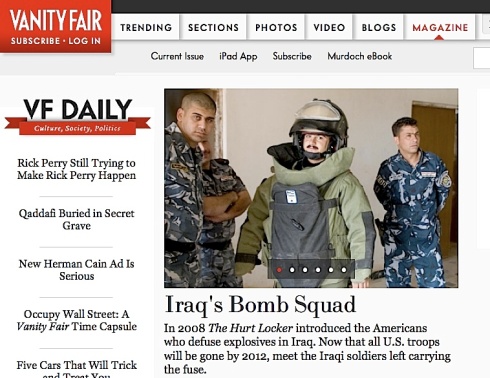
The dilapidated Hotel du Lac in Tunis looks a bit like the Sandcrawler, a tank-like vehicle featured in the first Star Wars movie. Campaigners hoping to save the hotel from demolition argue that it was, in fact, the inspiration for the vehicle. This story began life as a simple effort to fact-check that claim. It turned into something looser, weaving through sci-fi, architecture, the end of one empire in Africa and the dawn of another. It got more than 800,000 hits on the BBC News website, which makes it my most successful story ever, in so far as hits are a measure of success. Never thought so many people would be into Afro-Brutalism….
 In eastern Ukraine, a small band of Russian ultra-nationalists have joined the battle against the Russian-backed rebels. Reporter Leonid Ragozin
In eastern Ukraine, a small band of Russian ultra-nationalists have joined the battle against the Russian-backed rebels. Reporter Leonid Ragozin 


























